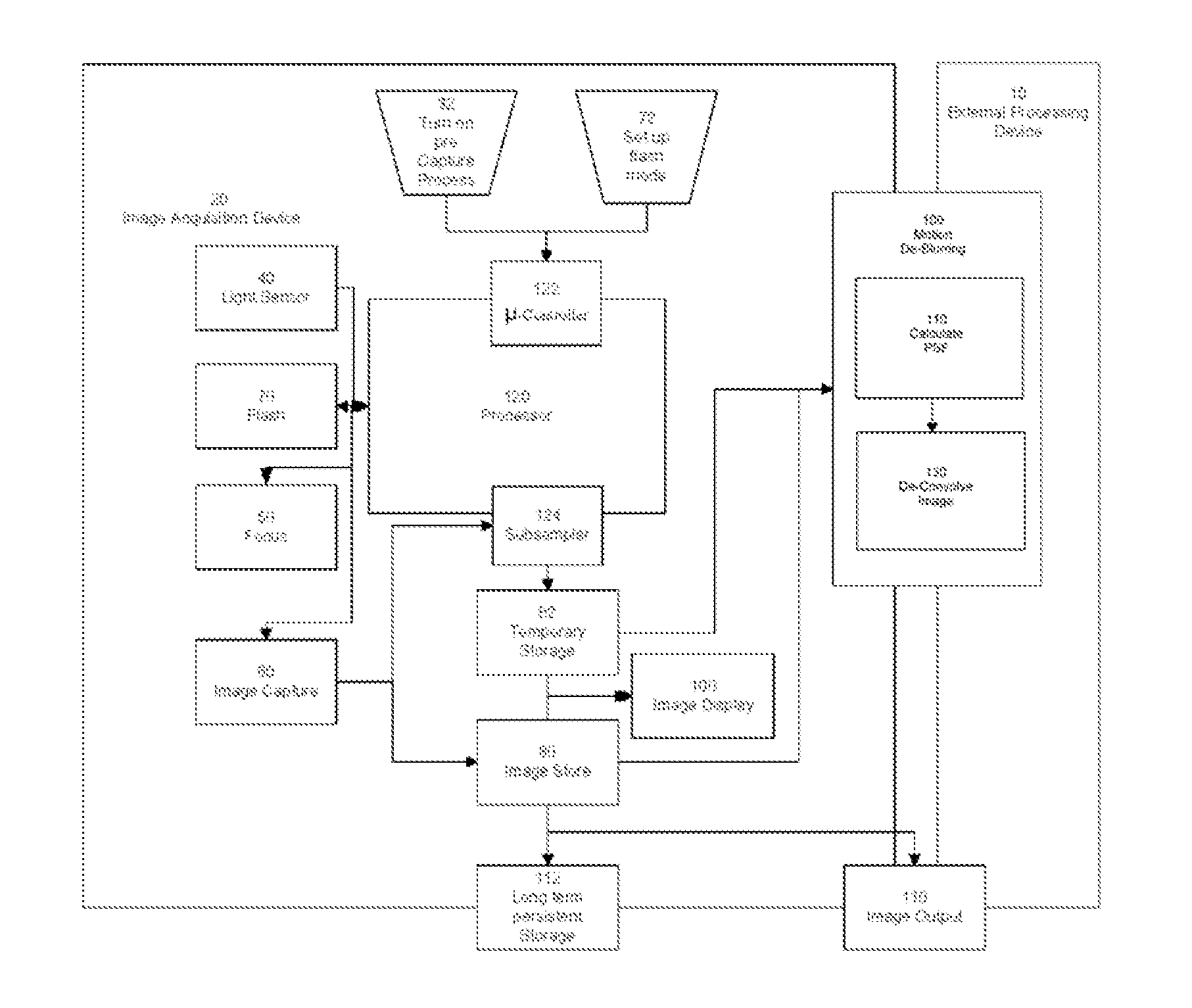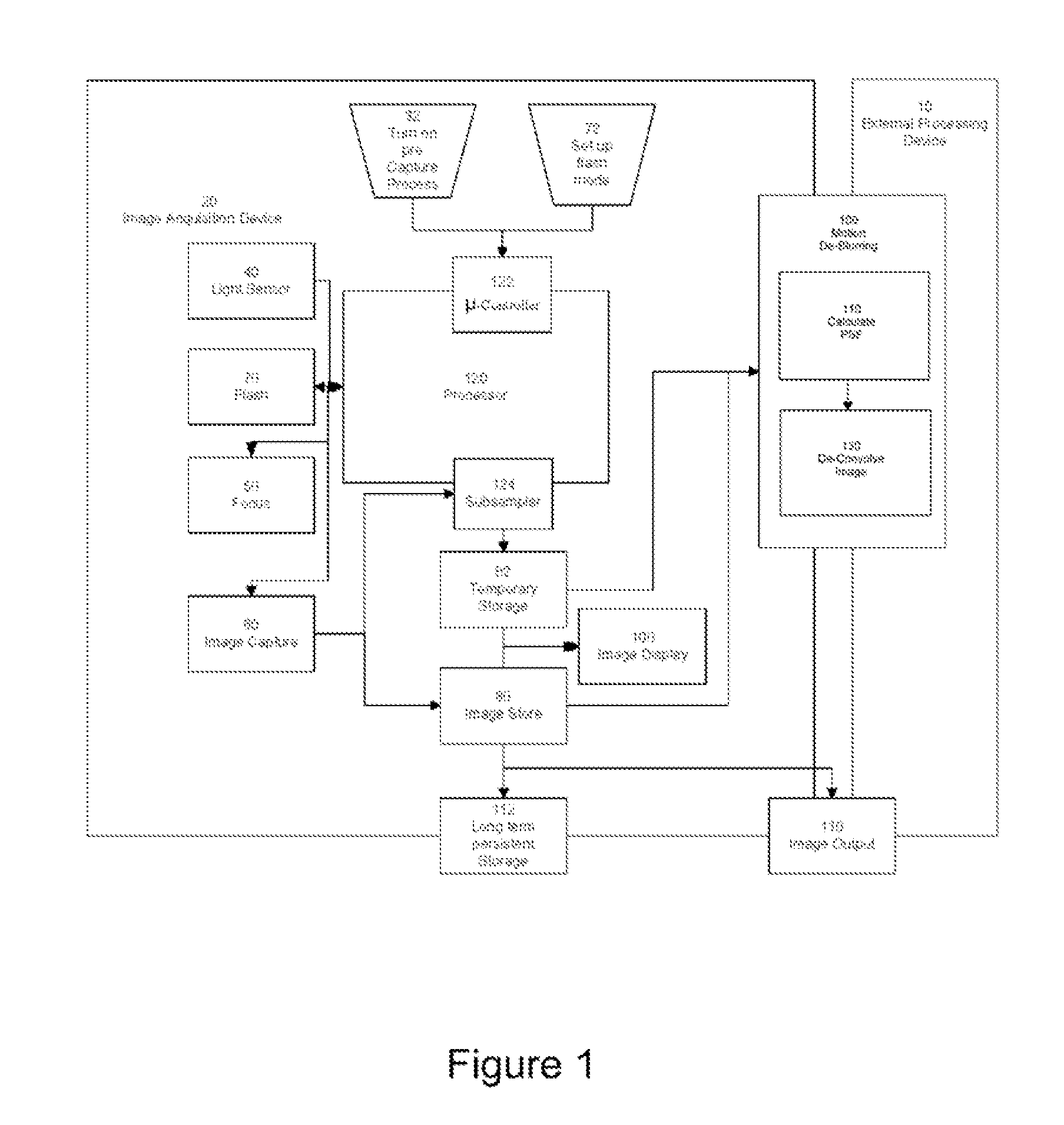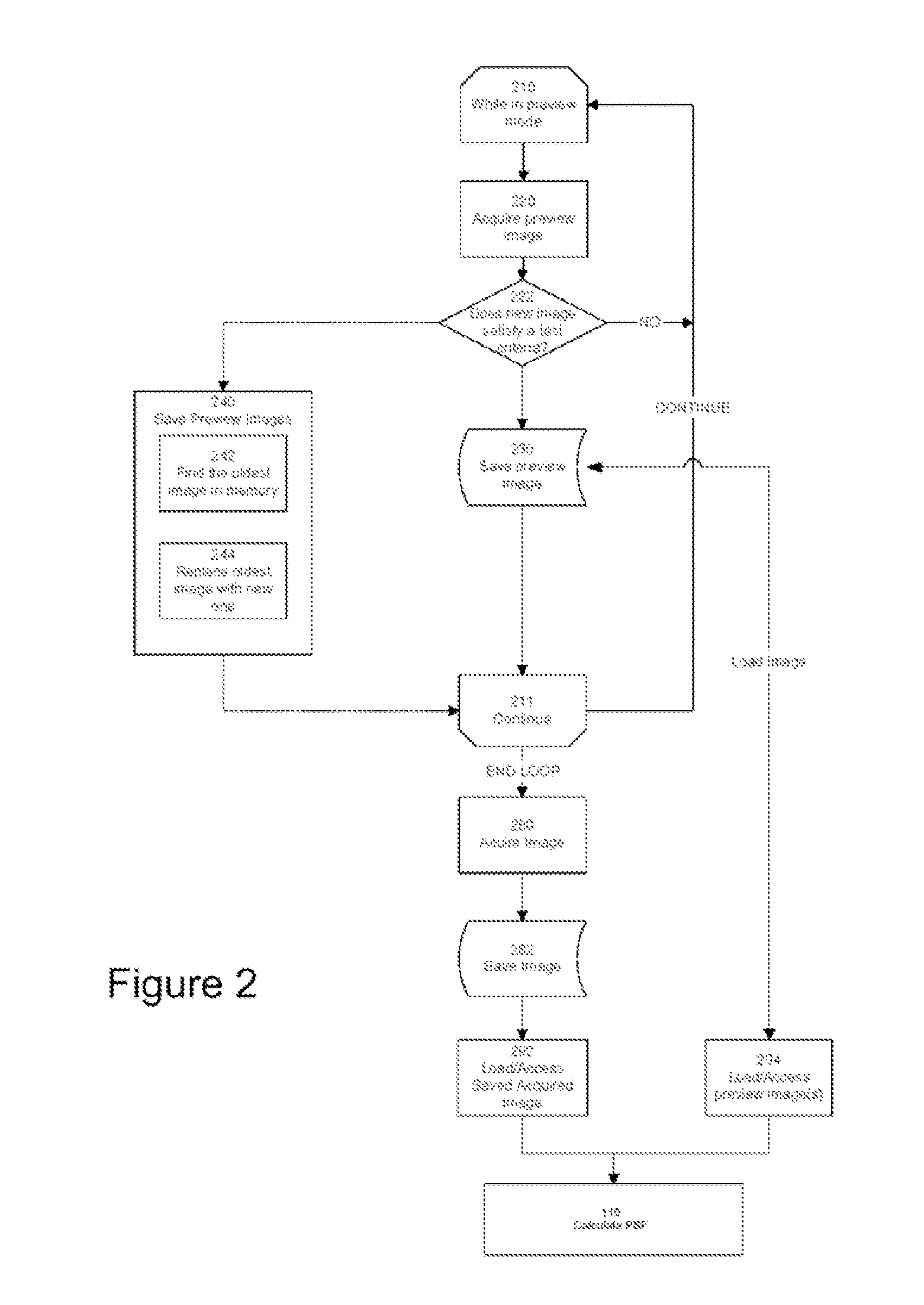Method of Determining PSF Using Multiple Instances of a Nominally Scene
a nominally scene and psf technology, applied in the field of digital image acquisition system, can solve the problems of requiring extensive computation, unable to a priori know the psf of a general optical system, and unable to solve the problem of a priori,
- Summary
- Abstract
- Description
- Claims
- Application Information
AI Technical Summary
Benefits of technology
Problems solved by technology
Method used
Image
Examples
Embodiment Construction
[0039]FIG. 1 shows a block diagram of an image acquisition system such as a digital camera apparatus operating in accordance with the present invention. The digital acquisition device, in this case a portable digital camera 20, includes a processor 120. It can be appreciated that many of the processes implemented in the digital camera may be implemented in or controlled by software operating in a microprocessor (μProc), central processing unit (CPU), controller, digital signal processor (DSP) and / or an application specific integrated circuit (ASIC), collectively depicted as block 120 and termed as “processor”. Generically, all user interface and control of peripheral components such as buttons and display is controlled by a μ-controller 122.
[0040] The processor 120, in response to a user input at 122, such as half pressing a shutter button (pre-capture mode 32), initiates and controls the digital photographic process. Ambient light exposure is determined using light sensor 40 in or...
PUM
 Login to View More
Login to View More Abstract
Description
Claims
Application Information
 Login to View More
Login to View More - R&D
- Intellectual Property
- Life Sciences
- Materials
- Tech Scout
- Unparalleled Data Quality
- Higher Quality Content
- 60% Fewer Hallucinations
Browse by: Latest US Patents, China's latest patents, Technical Efficacy Thesaurus, Application Domain, Technology Topic, Popular Technical Reports.
© 2025 PatSnap. All rights reserved.Legal|Privacy policy|Modern Slavery Act Transparency Statement|Sitemap|About US| Contact US: help@patsnap.com



